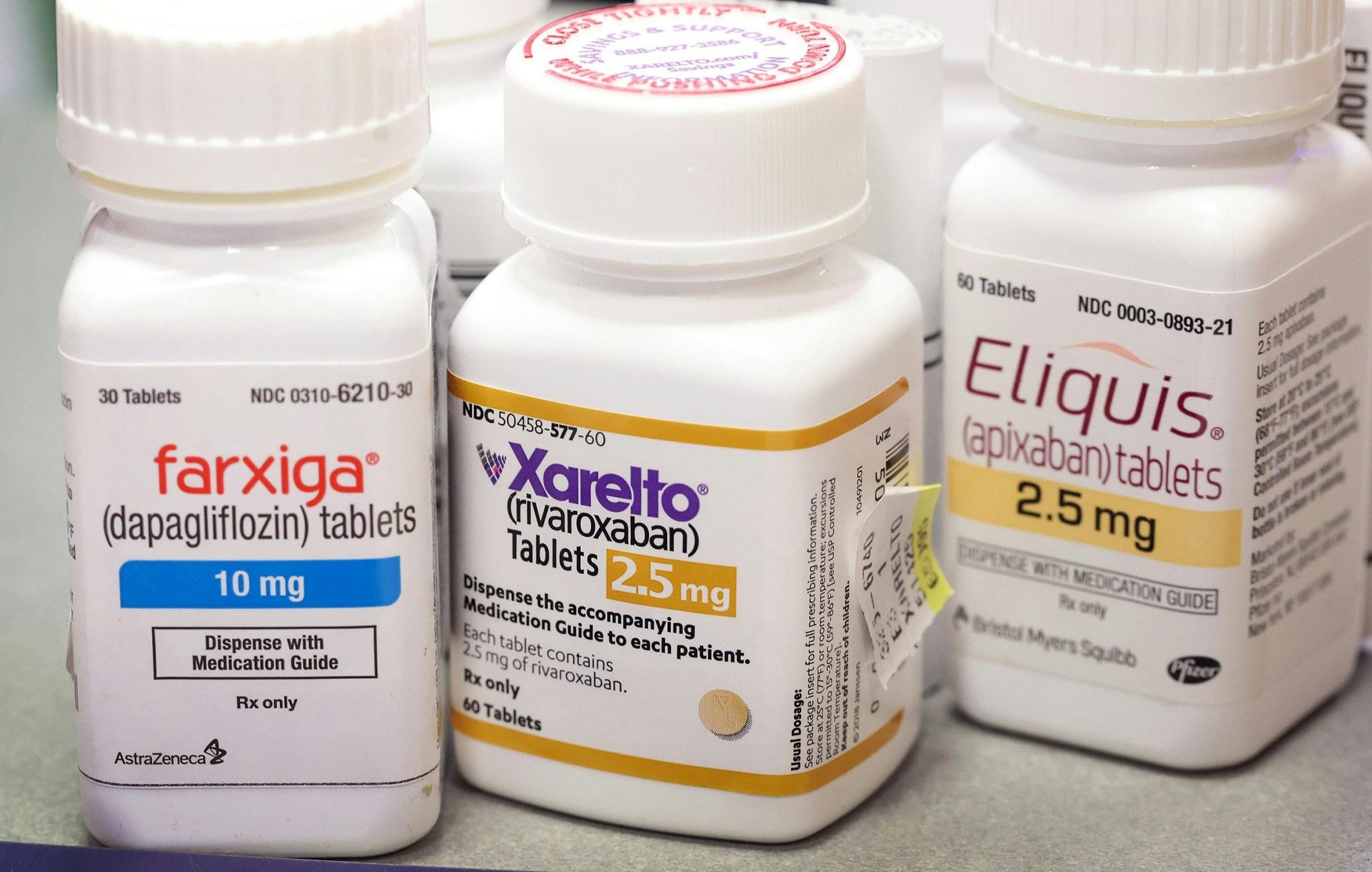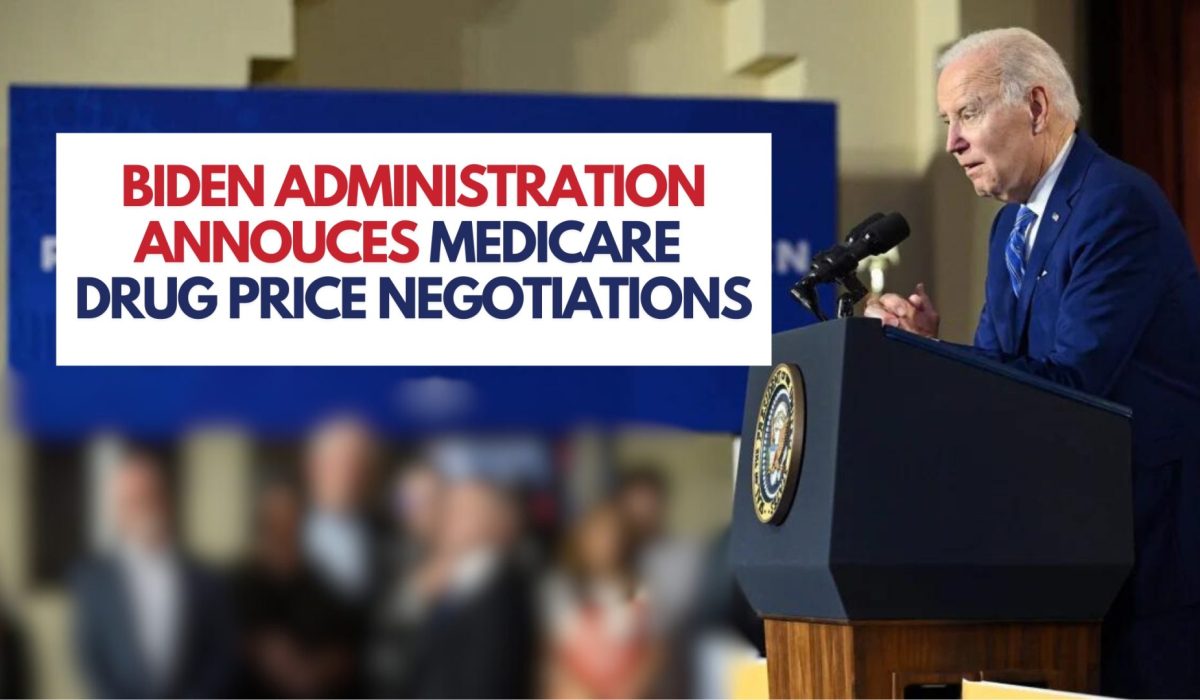The Significance of Medicare’s Negotiated Drug Prices
The Biden Administration’s recent announcement regarding Medicare drug price negotiations marks a significant turning point in U.S. healthcare.
For the first time, Medicare is using its power to negotiate directly with pharmaceutical companies, a move that promises to lower drug costs for millions of Americans.
This Medicare drug price negotiation represents a crucial policy change under the Inflation Reduction Act, signed into law two years ago.
Understanding the Inflation Reduction Act and Its Impact
Legislative Background
The Inflation Reduction Act, passed in 2022, introduced groundbreaking changes to U.S. healthcare, particularly in how Medicare can now negotiate drug prices directly with pharmaceutical companies.
Before this, Medicare was legally barred from negotiating drug prices, leading to higher costs.
The ability for Medicare to negotiate drug prices is expected to result in substantial savings and affordable healthcare for seniors and disabled individuals.
Historical Context
Historically, Medicare’s inability to negotiate drug prices meant that the program often paid significantly more for medications than other government health programs, such as the Veterans Affairs (VA) system.
This legislative shift aims to correct that imbalance, potentially saving billions of dollars annually and making life-saving medications more affordable..
The First 10 Drugs Selected for Medicare Price Negotiation
The Biden Administration recently announced the first 10 drugs selected for price negotiation under this new authority.
These drugs, among the most widely prescribed and expensive for Medicare beneficiaries, are crucial for managing chronic and severe conditions such as heart disease, cancer, diabetes, and autoimmune disorders.
The new prices will go into effect for people with Medicare Part D prescription drug coverage in 2026:
| Drug Name | Commonly Treated Conditions | Number of Medicare Enrollees Who Used the Drug in 2023 | Drug List Price in 2023 for 30-day Supply | Negotiated Price for 2026 for 30-day Supply | Savings (%) |
| Eliquis | Prevention and treatment of blood clots | 3,928,000 | $521 | $231 | $290 (-56%) |
| Jardiance | Diabetes; Heart failure; Chronic kidney disease | 1,883,000 | $573 | $197 | $376 (-66%) |
| Xarelto | Prevention and treatment of blood clots; Reduction of risk for patients with coronary or peripheral artery disease | 1,324,000 | $517 | $197 | $320 (-62%) |
| Januvia | Diabetes | 843,000 | $527 | $113 | $414 (-79%) |
| Farxiga | Diabetes; Heart failure; Chronic kidney disease | 994,000 | $556 | $178.50 | $377.50 (-68%) |
| Entresto | Heart failure | 664,000 | $628 | $295 | $333 (-53%) |
| Enbrel | Rheumatoid arthritis; Psoriasis; Psoriatic arthritis | 48,000 | $7,106 | $2,355 | $4,751 (-67%) |
| Imbruvica | Blood cancers | 17,000 | $14,934 | $9,319 | $5,615 (-38%) |
| Stelara | Psoriasis; Psoriatic arthritis; Crohn’s disease; Ulcerative colitis | 23,000 | $13,836 | $4,695 | $9,141 (-66%) |
| Fiasp; Fiasp FlexTouch; Fiasp PenFill; NovoLog; NovoLog FlexPen; NovoLog PenFill | Diabetes | 785,000 | $495 | $119 | $376 (-76%) |
Source: CMS, https://www.cms.gov/files/document/fact-sheet-negotiated-prices-initial-price-applicability-year-2026.pdf
These reductions are not just symbolic; they represent tangible savings for patients who rely on these medications daily.

How Medicare Beneficiaries Will Benefit from Negotiated Prices
The impact of these negotiated prices is substantial.
If these new prices had been in place last year, Medicare beneficiaries could have saved an estimated $1.5 billion in out-of-pocket costs in the first year alone.
This is particularly important for seniors, many of whom live on fixed incomes and struggle with high prescription drug costs.
The ability for Medicare to negotiate drug prices is expected to significantly ease the financial burden on millions of beneficiaries.
This change will alleviate significant financial pressure on individuals who require these expensive medications to manage chronic conditions.
Economic and Social Implications of Medicare’s Negotiated Prices
Impact on Big Pharma
While the price reductions are a victory for patients, the pharmaceutical industry has expressed concerns.
Companies like Novartis and Johnson & Johnson argue that these negotiated price reductions could harm patient access to medications.
The Pharmaceutical Research and Manufacturers of America (PhRMA) warns that reducing prices could diminish incentives for new drug discoveries.
Despite these concerns, the Medicare drug price negotiation is seen as a necessary step to balance the interests of patients and the pharmaceutical industry.
The Future of Medicare’s Drug Price Negotiation Program
Upcoming Negotiations
The negotiated drug prices set to take effect in 2026 are just the beginning.
Each year, Medicare will select additional drugs for negotiation, gradually expanding the program.
In 2025, up to 15 more drugs covered under Part D will be added, with more drugs from both Part B and D to follow in subsequent years.
The Medicare drug price negotiation program is expected to continue growing, providing increasing benefits to Medicare beneficiaries.
Long-Term Effects
This ongoing negotiation process is expected to have long-term effects on the U.S. healthcare system.
Not only could it lead to further reductions in drug prices, but it may also inspire similar cost-saving measures in the commercial market.
The Biden Administration’s future plans include expanding the $2,000 out-of-pocket prescription drug cost cap beyond Medicare, potentially benefiting all Americans.
How Medicare Beneficiaries Should Prepare
For Medicare beneficiaries, staying informed about these changes is crucial.
The new prices will not take effect until 2026, so it’s essential to plan ahead.
Beneficiaries should review their current medication costs and be prepared to take advantage of the lower prices once they become available.
Additionally, keeping up with annual updates on newly negotiated drugs can provide further savings opportunities.
The Importance of Medicare Plan Reviews
As Medicare evolves with these changes, it’s more important than ever to review your Medicare plan regularly.
Medicare Plan Reviews with our agents ensure that you are prepared for these new pricing structures and any other updates that may affect your coverage.
Our agents will ensure that you’re on the best plan for your needs and ready to take advantage of the new negotiated drug prices.
Book an appointment with one of our local agents to review your plan and ensure you’re ready for these upcoming changes.
Summary and Final Thoughts
The Biden Administration’s negotiation of drug prices under Medicare is a landmark achievement.
As the program expands, more beneficiaries will benefit from lower drug costs, contributing to a more sustainable and equitable healthcare system.
Stay Informed and Proactive
Stay informed and proactive about your healthcare.
Share this information with others who may benefit, and keep an eye on future developments in Medicare drug pricing to maximize your savings.
Don’t forget to schedule your Medicare Plan Review to make sure you’re fully prepared for the changes ahead.
Helpful Resources and Links
Links:
- Inflation Reduction Act
- Official Announcement from the White House
- CMS Fact Sheet on Negotiated Prices
Medicare Parts
Speak with a licensed insurance agent!
Enter your Zip Code to View Medicare Plans in your Area
Speak with a licensed insurance agent!

